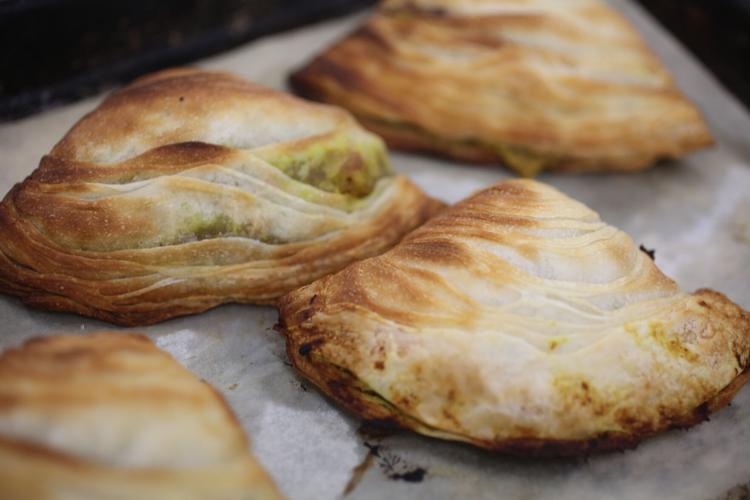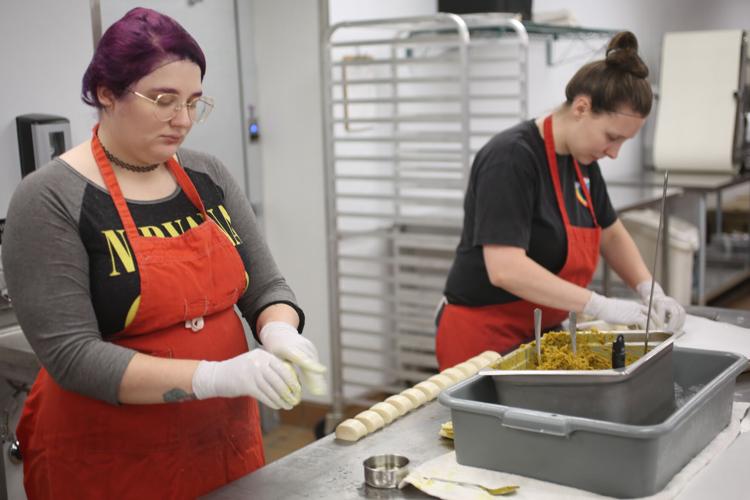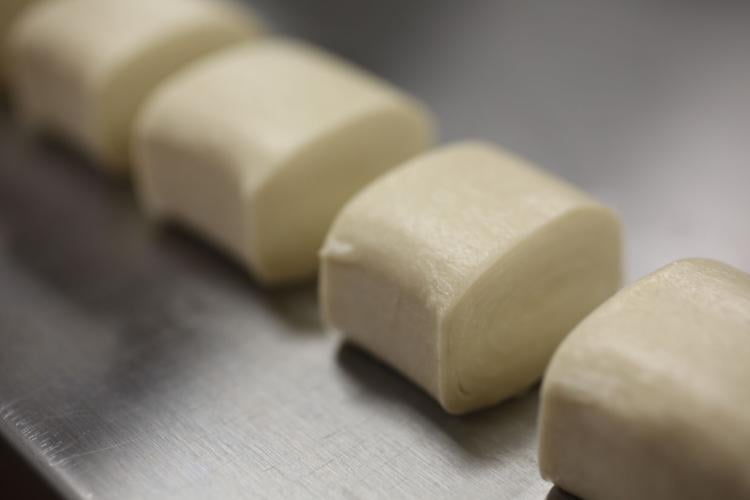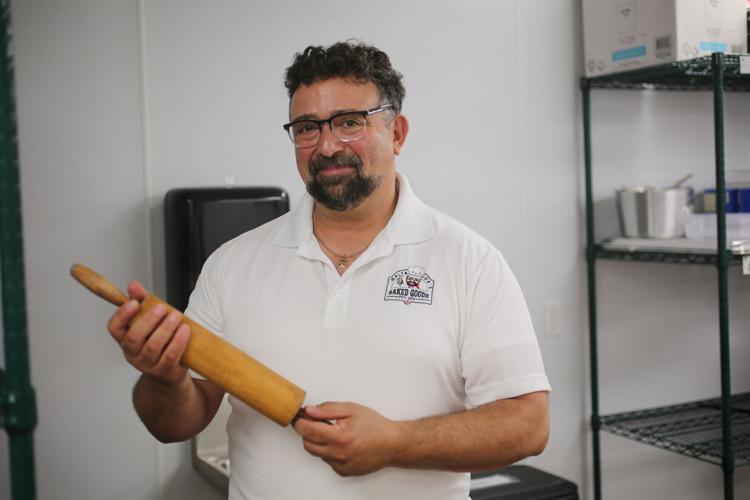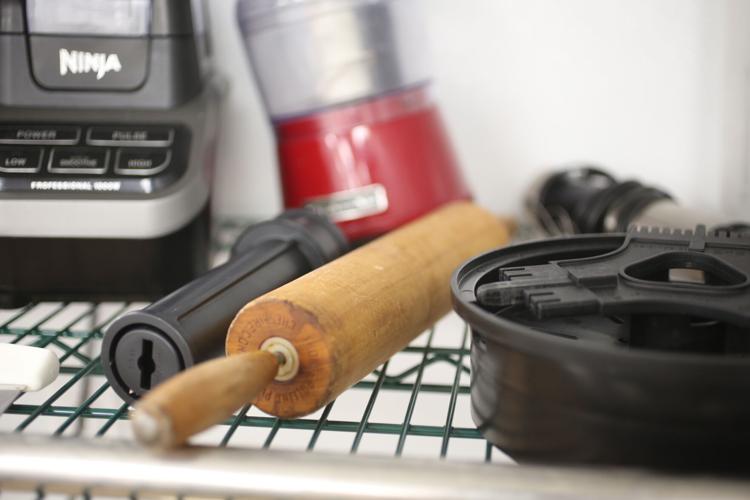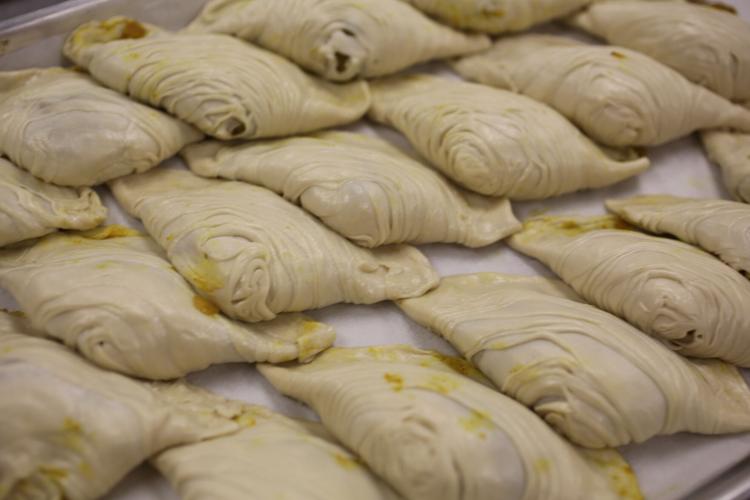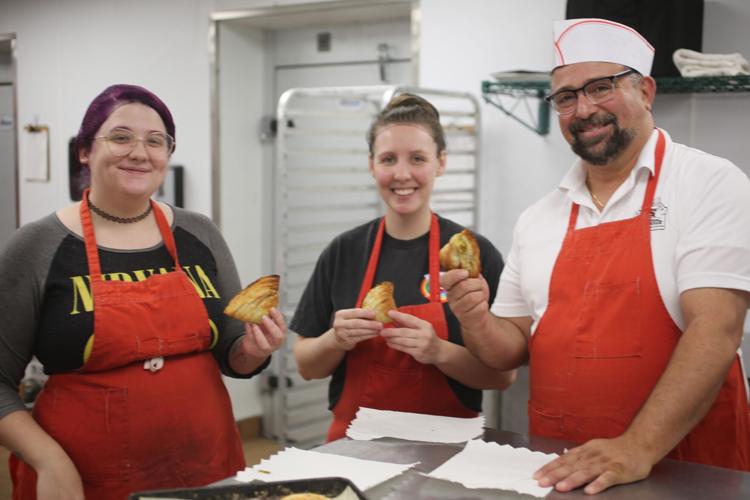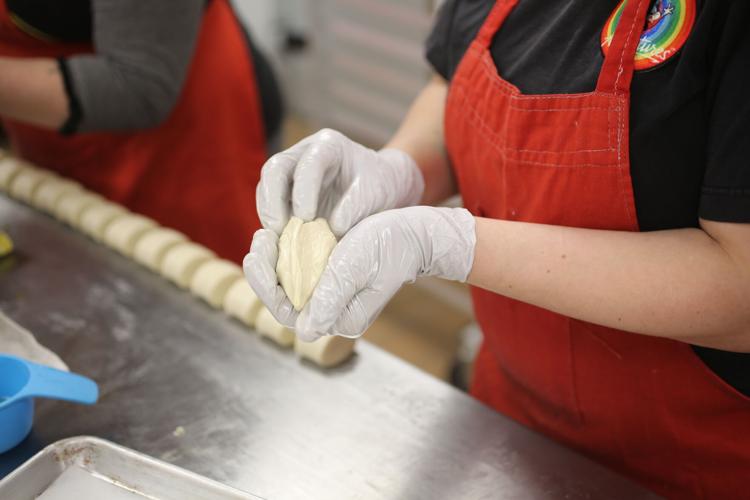Joe Gauci is known as Malta Joe, after his pastizzi company, but he might never learn Maltese.
He’s old enough to be retired and it’s a difficult language, thanks to Malta’s unique position in the Mediterranean Sea. While at its core, the language mixes Sicilian and Arabic, its vocabulary and grammar reflect the island nation’s generations of colonization. English has been an official language since 1934, when it replaced Italian as the language of British administrators.
Allegiance to Britain also made Malta a vulnerable target during World War II — used by Britain to attack Axis powers in Egypt, Libya and Italy; the Axis targeted the island. Nowhere during the war sustained as many bomb attacks for as long as Malta did.
After the war ended, Joe’s parents left for America. Like many immigrant parents, they wanted their children to acclimate to the culture.
“They spoke Maltese fluently all the time, especially when they didn’t want us knowing what they were saying. [But] they didn’t teach us, because their parents said it would be too hard for us already being Maltese.
“They regret not teaching us, and I regret not learning,” Joe said.

Joe Gauci is the owner of the only pastizzi factory in the United States.
But they’d tell Joe about their homeland, about its beauty and the horrors of war. His parents lost friends in air raids, when children would wait until the bombing stopped to go out to play, only to be hit by the loose British counter shots falling down from the sky.
He also learned about being Maltese in the kitchen.
“Everything was surrounded by the next meal,” he said. “We’re making our pasta, preparing the figs, preparing the fruit, getting the salads ready, shucking oysters or clams, deneedling the prickly pears,” he said.
Sometimes his mom would send him to the deli to pick up soda or water, and sometimes she’d ask for his help making pastizzi. The night before they would have guests over, they would start laminating the dough. By morning, 12 pastries would be ready.
“If you didn't spend time in the kitchen with grandma, in the kitchen with mom, you don't learn these things,” Joe said. “Fortunately with me, many people didn’t spend time with their grandmothers and don’t know how to make pastizzi.”

Joe Gauci's mother used this rolling pin to laminate pastizzi dough by hand. He used it, too, during the earliest years of his operation.
Pastizzi are a savory pastry and signature treat of Malta, where each neighborhood, each block, has its own pastizzeria. In form, they are most similar to the sfogliatella you might have tried at Roma Imports. Like a sfogliatella, it’s a laminated pastry, coiled into a roll and pressed into the shape of a lobster tail. A pastizz, though, can be used as a medium for a variety of fillings, not just sweet ricotta (though Joe will sell you a sweet ricotta-filled pastizz).
Each pastizz is molded by hand into its signature shape, in a process that Joe calls “walking down the stairs,” gently pressing each layer of lamination out into a spiral. The technique requires finesse: lamination is a delicate process and when the team works on the pastries they have to move quickly before the dough becomes too slippery. And yet, there's a rusticness to the form, with its hand-pressed layers and unique shapes.
When the internet came along, Joe searched for pastizzi and could not find them anywhere. “It was part of my motivation for starting this,” he said.

A tray of split pea pastizzi at Malta Joe's Pastizzi Factory.
At Malta Joe’s, you can order pastizzi filled with an aromatic, vegetarian split pea curry or a traditional Maltese corned beef. His filling stands out as much as his pastry, warmly spiced with onions, cumin and turmeric. Joe is working on shipping out the dough in long rolls, so Maltese across the country can fill their pastizzi with their own favorite flavors, like rabbit or squid.
When Joe would help his mother in the kitchen, it would take them all night to make a dozen pastries. He knew, to make a business out of pastizzi, he’d have to make hundreds every day. So he went back to Malta, seeking advice from the most successful pastizzierias on the island.
“It’s different on Malta. The competition is fierce. There’s five big companies doing it, I told you how small [the island] was. It was so hard getting anyone to teach me how to do it because they were worried I’d open up a shop next door and put them out of business. I’m using those techniques today. I’m developing the pastizzi culture here,” he said.

Laminated pastizzi dough has many layers to create a flaky, savory pastry.
Joe now has a factory of his own, which he converted last year from a laundromat. While you might be able to find pastizzi in individual bakeries across the country — in Astoria, Queens, perhaps; another in Dearborn, Michigan — many metropolitan areas, like Chicago and LA, are pastizzi deserts.
The factory is only here because Joe is here: he and his now ex-wife moved to Tucson from New York City to retire and enjoy the recreation and weather.
“We both had jobs — she was a marketing executive, I was a recording engineer. (But we’d) come here for two weeks, pack everything into the two weeks we were here. We’d rent a motorcycle. Hiking, restauranting, cry the day we were packing to go home, cry on our plane going back to New York. We knew we were going to come and retire here,” Joe said.
“That’s how I fell in love with it. I like it. I love the saguaros, the desert. It’s very romantic to me. The people are nice. All that,” he said.

Marissa Plowden, left, and Heather Hyde, right, make split pea pastizzi at Malta Joe's Pastizzi Factory.
Joe makes his pastizzi accessible to others across the country by air mail.
“I'm a part-time weatherman when I’m shipping them out,” he said. “I need to know if it's bad weather in Memphis, even if I'm selling to California.” This is a logistical quirk of his shipping company, which has a central processing center in Tennessee. If it rains there, the dough will spoil during the wait.
Here in Tucson, we can avoid the shipping hassle by picking up the pastizzi frozen in bulk at his factory at 3452 E. Milton Road. “As far as the neighborhood goes, it’s like the Willy Wonka factory,” he said. “It’s not much to look at from the outside, but inside, it’s magical.”
But Malta Joe’s got its start as a food truck at the Rillito Farmers Market, 4502 N. First Ave., on Sundays, and you can still find him there, slinging pastizzi hot from the oven 8 a.m. to noon.
This is your chance to interface with Joe yourself. His warmth and frankness collide in a prism of facial expressions louder than his booming voice. He’s eager to talk about Malta: he posts three times a day on a Facebook page of fun facts about the country and will give anyone who asks a lecture about Maltese history.
“The oldest known standing manmade stones on Earth are on Malta. The Monolithic Era, when man found how to use tools and technology, made temples. Stone on top of stone. These temples are older than Stonehenge, way older than the pyramids. No one knows who made them or what they’re for, but they’re on Malta,” he said.

The technique behind making pastizzi requires finesse.
Joe has worked to embody what it means to be Maltese. He moves with the confidence and precision of an athlete when he’s making pastizzi: rapidly cutting a log of dough in mechanically precise portions, turning a piece of dough like putty in the right shape in seconds, before it gets too warm from his touch.
He wears a Catholic necklace because the first Christian converts were in Malta. “On the way to Rome (where he’d be on trial), Saint Paul and the people on that boat were shipwrecked on Malta,” he said. St. Paul preached to the people on the island and made the first Christians.
In his factory, Joe has created a pilgrimage of its own. Maltese families come from across the country to teach their children about Maltese culture and food.
“A lot of (customers are) traveling between LA and Texas. They GPS me and get a whole box of something to eat on the way to Texas. To see their faces: here’s my daughter, here’s my son. Showing them all this Maltese stuff,” he said. “If they know they can get pastizzi, they make it a destination. You have pastizzi, hand it over. Here’s our children. They need to know of pastizz.”
Watch now: Malta Joe's bakery is the only pastizzi factory in America. Watch Joe Gauci make pastizzi from scratch at his bakery on 3452 E. Milton Road.


